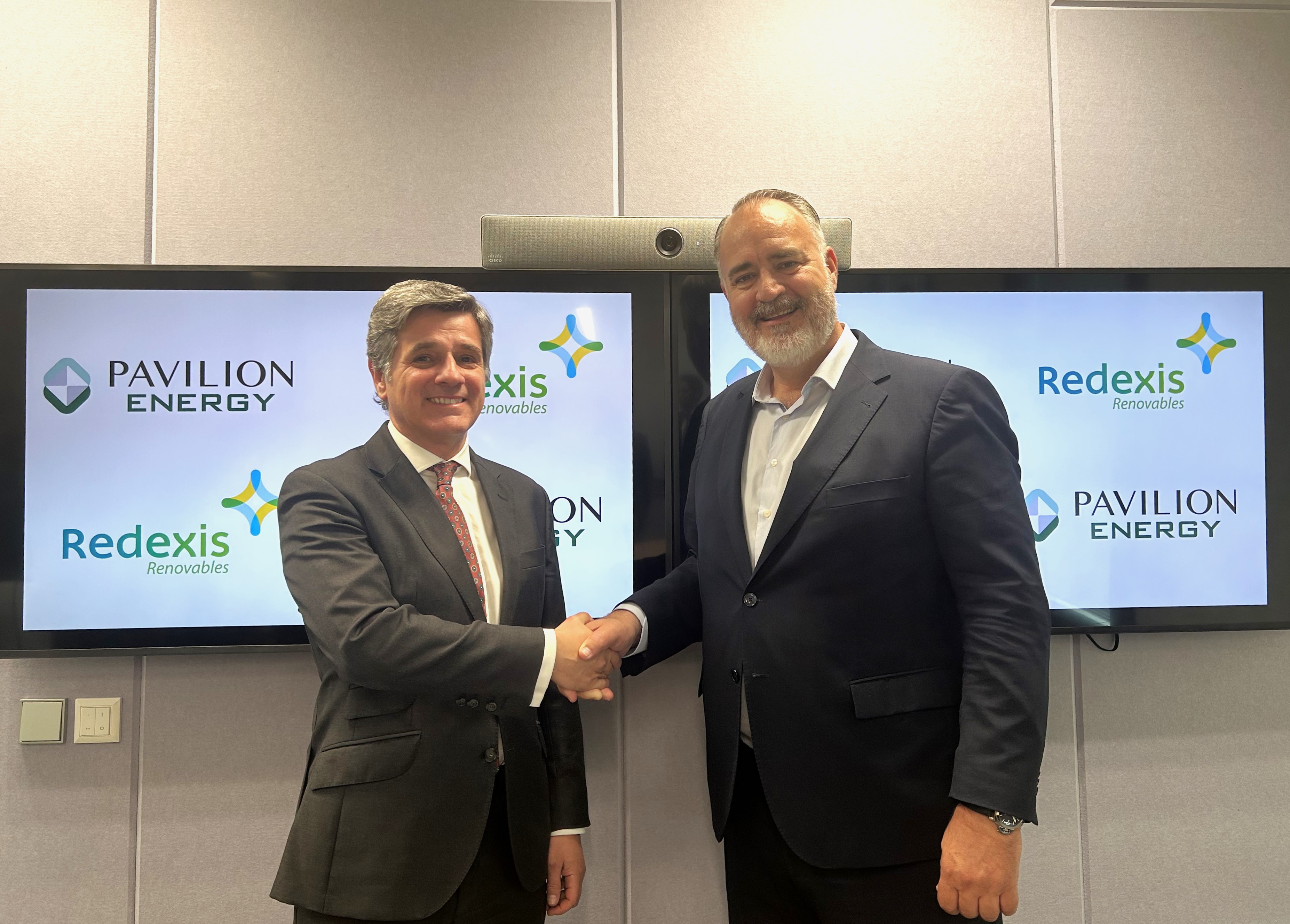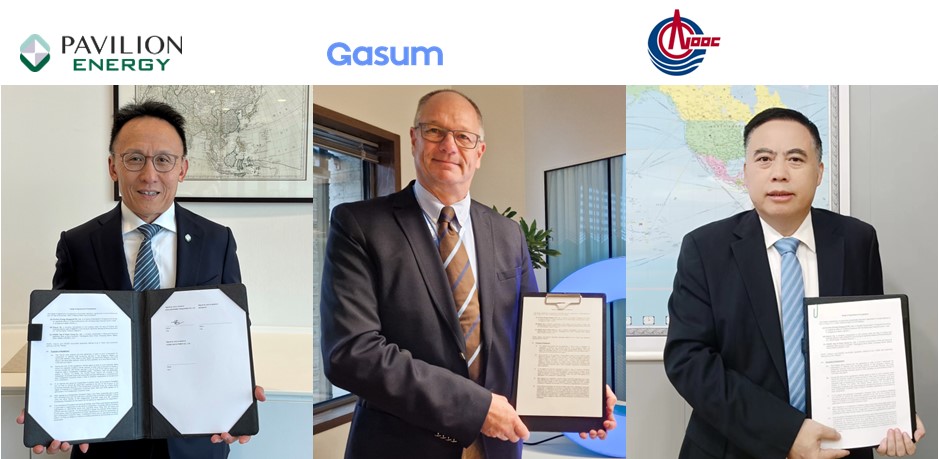A ship naming ceremony was held at the Hyundai Heavy Industries Shipyard in Busan, South Korea, on Wednesday (Dec 3) for two Singapore-flagged Liquefied Natural Gas (LNG) newbuildings - the BW Pavilion Vanda and BW Pavilion Leeara.
It was organised by BW Pavilion LNG, a joint venture between maritime company BW Group and Temasek portfolio company Pavilion Energy.
Minister for Transport Mr Lui Tuck Yew and his wife Teng Soo Fen, together with Chairman of Pavilion Energy, Mohd Hassan Marican and his wife Noraini Mohamed Yusoff were present at the ceremony. Mdm Teng and Mdm Noraini are sponsors of the BW Pavilion Vanda and BW Pavilion Leeara respectively.
“With growing Asian LNG demand, the delivery of the new LNG vessels is a significant milestone in Pavilion Energy’s capability build-up, as part of our plans to be an integrated LNG company,” said Pavilion Energy Group CEO Seah Moon Ming.
KEY ROLE IN SINGAPORE'S GROWING LNG MARITIME INDUSTRY
The LNG newbuildings meet eco-friendly specifications and will add to the joint venture’s fleet currently on water, BW Group and Pavilion Energy said in a press release.
Building of the BW Pavilion Vanda began about 13 months ago and it will be ready to sail on Dec 15, while the BW Pavilion Leeara will be completed by end March 2015. The vessels, which can carry close to 162,000 tonnes of LNG will make deliveries around the region and play a part in helping to ensure Singapore's future energy security.
"The vessels will first serve Sinopec for a few years, and then we expect to do good long term service for Singapore's energy needs,” said BW Group Chairman Andreas Sohmen-Pao. “In a world driven by energy and an increasingly uncertain world geopolitically, we are committed to ensuring that energy is delivered safely to our home of Singapore, and that Singapore becomes an important global hub for LNG."
Asia currently accounts for about two-thirds of global LNG demand, and this is expected to increase amid economic development and the shift towards clean energy. As demand growth generates new trade flows and markets, industry players are working towards developing an Asian LNG Hub to facilitate LNG trading in Asia.
According to Pavilion Energy, it will be able to match global supply with regional demand more quickly and effectively together with its two new carriers. "Having our own ships will play a key role in helping us optimise our procurement and trading operations across the globe," said Mr Seah.
Mr Seah added: "Singapore also aspires to be a regional LNG trading hub to better serve the Asia's growing needs for LNG. Our strategic location in the Straits of Malacca and South China Sea are host to some of the world's vital sea lanes, where 50 per cent of the world's LNG cargo passes through."
Pavilion Energy and BW Group inked a partnership in May this year to acquire, manage and charter maritime LNG assets, including LNG carriers, with an initial paid-up capital of US$55 million. The two Singapore-flagged vessels are expected to help enhance the standing of Singapore's growing LNG maritime Industry.






